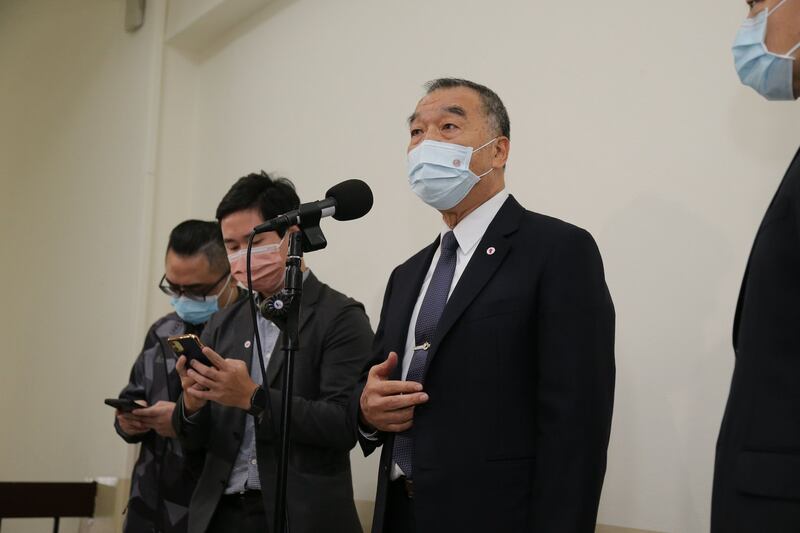China’s invasion of Taiwan is only a matter of time, a former Taiwanese army chief has warned, as the island’s defense minister vowed that the armed forces will fight to the end against the Chinese troops.
“The question is not whether China will attack Taiwan but when,” said Huoh Shoou-yeh, formerly Taiwan’s Chief of General Staff and currently serving as a strategic advisor to the Office of the President and chairman of a Defense Ministry think-tank.
“Taiwan must be ready for a conflict at any time,” Huoh told the audience at the annual Taipei Security Dialogue, hosted by the think-tank the Institute for National Defense and Security Research on Wednesday.
The four-star general added that Taiwan “has been on alert” for 70 years but since China’s paramount leader Xi Jinping came to power, Beijing’s pressure on the island has intensified.
Meanwhile Taiwan’s minister of national defense Chiu Kuo-cheng told lawmakers in Taipei that the island "absolutely has a chance of winning" a war against China but it will be an act of national defense and not provocative.
“As long as the enemy can’t land troops or plant its flags on top of the buildings of Taiwan's central government ministries, it has not won," Chiu said.
When asked about the Taiwanese army’s readiness, the minister said he was confident that “we are capable of mobilizing 200,000 people within 24 hours" and vowed that Taiwan “will fight to the end.”

Asymmetric warfare
U.S. officials have suggested various dates for an invasion of Taiwan. Adm. Philip Davidson, former Commander of the U.S. Indo-Pacific Command, told a Congressional hearing last year that China may attack in 2027.
Most recently, U.S. Chief of Naval Operations Michael Gilday said that “a 2022 window or potentially a 2023 window… cannot be ruled out.”
Experts attending the Taipei Security Dialogue, however, cast doubt on this timeframe.
Bonny Lin, director of the China Power Project at the Center for Strategic and International Studies (CSIS), said she personally doesn’t “see any clear indication for an invasion in 2023 or 2024,” but there may be more coercion or some other actions.
In October, U.S. Secretary of State Antony Blinken also warned that China is pursuing unification with Taiwan "on a much faster timeline." Again, Lin said that Blinken did not attach any time schedule and there was no mention of China's imminent invasion of Taiwan in his statement, which was more about Xi Jinping asserting his hardline stance before the Chinese Communist Party’s 20th Congress.
Gen. Huoh Shoou-yeh spoke of the current war in Ukraine, which he said has helped the world notice the Taiwan issue, too.
Ukrainian people have successfully fought off Russian troops thanks to “the will to resist the enemy, as well as the assistance provided by its neighbors and other democratic countries,” he said.
Some participating experts such as Sarah Kirchberger from the Institute for Security Policy at Kiel University in Germany said that learning from the Ukraine war, China should “think twice” about its intention of subduing Taiwan.
“Russia has proved that overlooking the capabilities of the invaded country as well as its will to defend itself can lead to serious miscalculations,” Kirchberger told RFA.
The expert spoke of the brief Winter War between Finland and the Soviet Union in 1939-1940 when, in just three months, the Soviet army suffered big losses despite superior military strength.
There are similarities between Finland then and Taiwan now, according to Kirchberger, and Taiwan can use its “democratic resilience” to take advantage of the asymmetric warfare against China.
Some other analysts suggest that the Taiwanese military should improve its intelligence and public affairs mechanisms, especially as Chinese cognitive warfare and cyberattacks became common practice.
